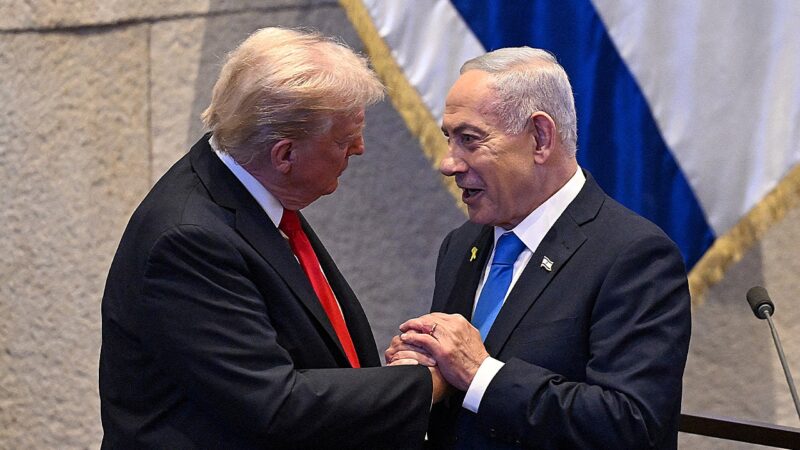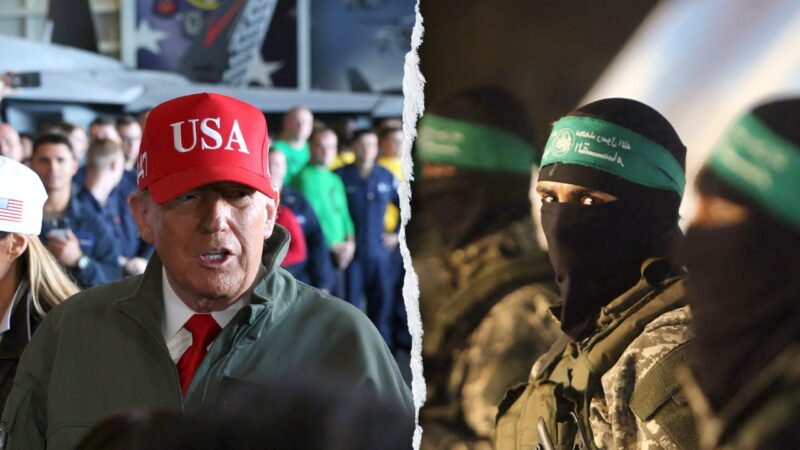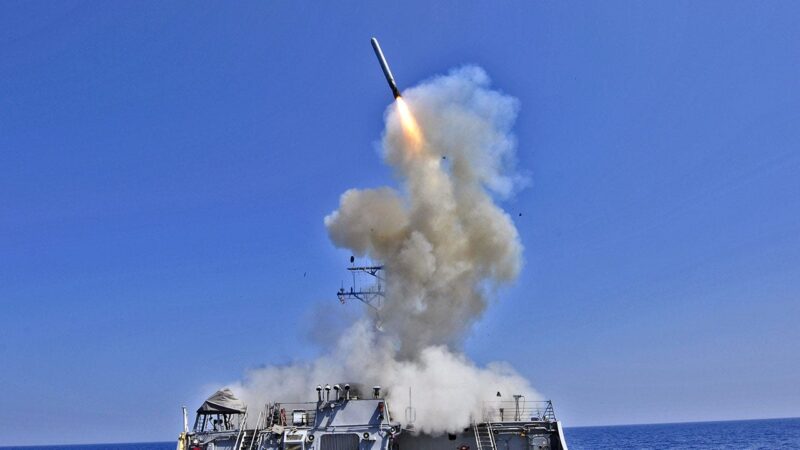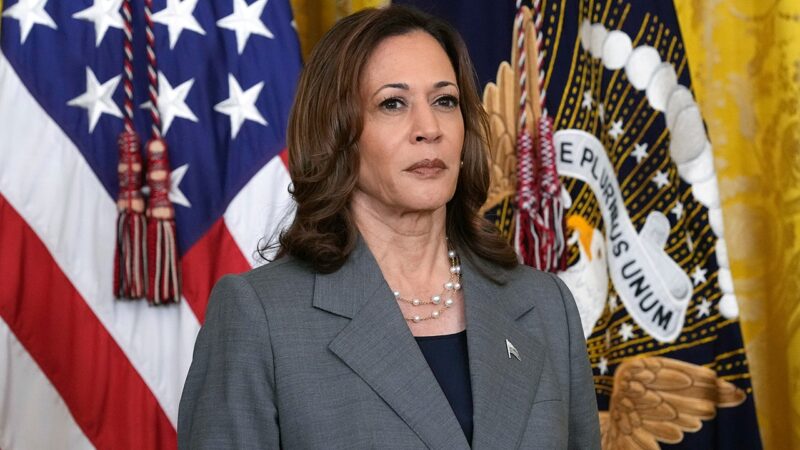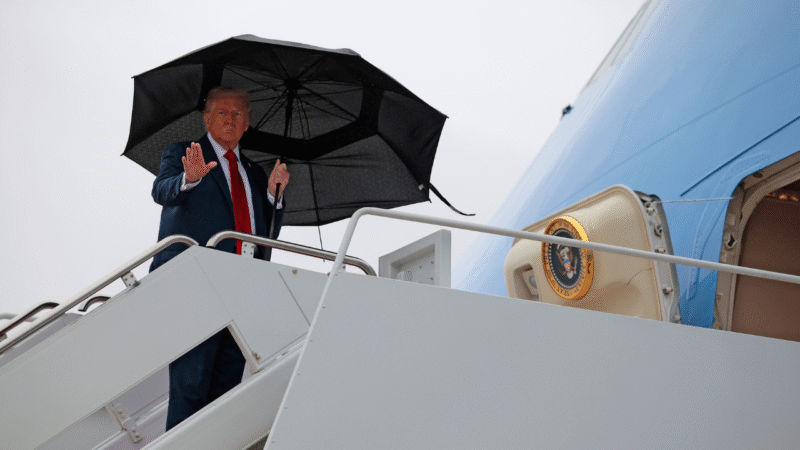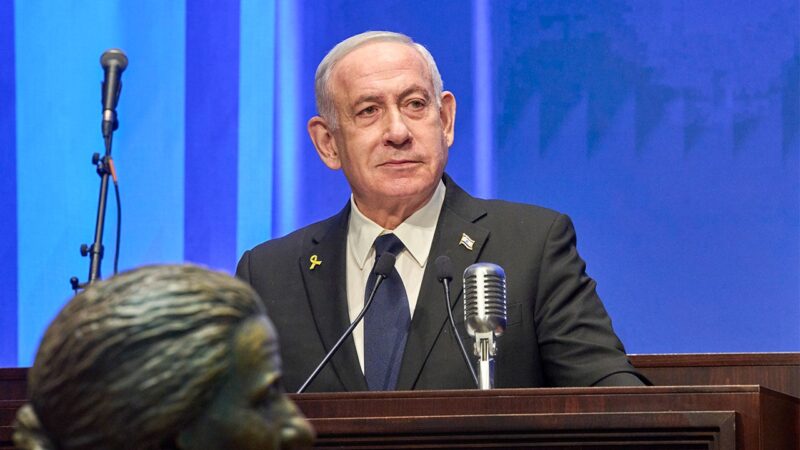Proud Boy Enrique Tarrio: MAGA Has Figured Out How to ‘Play Dirty’
When Enrique Tarrio picked up the phone, the first thing he wanted me to know was that he was pushing through a four-day hangover. This was on Monday, and he had just returned to Miami from WestFest, an annual pilgrimage to Las Vegas in which Proud Boys from around the country gather for hard drinking and general debauchery, basically a “frat party,” he said. But with that out of his system, Tarrio—who has long been one of the far-right group’s key leaders—found himself stirred by a more pressing preoccupation: all the people he wants to get fired.
Over the past several days, Tarrio told me, he has activated an “extremely effective” network of Proud Boys to scour the social web, find posts celebrating the assassination of Charlie Kirk, identify the individuals involved, and persuade their employers to fire them. In many of these groups, people celebrate over growing tallies of firings, which they refer to as “scalps,” he told me. “It’s funny because this was a tactic that was used on us from 2017 forward. We got deplatformed, debanked,” he told me. “It sucked for us. I always said I wouldn’t do it back to anybody. But since then, I’ve been incarcerated for something I didn’t do,” Tarrio said, referring to his conviction of seditious conspiracy for his role in the Capitol insurrection on January 6, 2021. “So I’m in a different mindset right now. An eye for an eye right now.” In 2023, when officials announced that Tarrio had been sentenced to 22 years in prison, they emphasized that “no organization put more boots on the ground” on January 6 than the Proud Boys, who were, under Tarrio’s direction, “at the forefront of every major breach of the Capitol’s defenses, leading the on-the-ground efforts to storm the seat of government.” (In January, Tarrio was released from prison as part of Trump’s blanket January 6 pardons.)
In recent days, Tarrio told me, he and the rest of the Proud Boys have been mostly focused on targeting employees in government and higher education, but his white whale is far more prominent: the left-wing influencer Hasan Piker. Tarrio told me that his campaign to get Piker kicked off Twitch wasn’t about anything “in reference to Charlie.” As my colleague Spencer Kornhaber recently wrote, Piker condemned the shooting and anyone who attempted to justify it, though he has at times used his own violent rhetoric in the past. Piker was temporarily banned from Twitch earlier this year, when he said people who truly oppose Medicare fraud should “kill” Senator Rick Scott. Still, Tarrio seemed to sense that the post-assassination cultural climate would be friendly to an attempt to go after Piker. “I was banned” from Twitch, he told me, “and I didn’t say half the shit he did.”
Tarrio told me that he and other Proud Boys have teamed up in a group chat with other right-wingers who all want to get Piker kicked off Twitch by running a bigger and more sustained version of their other active mass-firing campaign. They have been circulating Piker’s past controversial statements to companies that advertise on Twitch, in an attempt to pressure the streaming platform, he told me.
“That’s one more federal agent that’s coming after me,” Piker told me over the phone late on Tuesday night, joking about Tarrio’s reported history as a federal informant. (Tarrio previously told Reuters that he did not “recall” ever having worked undercover in this way, but today he told me that he “never denied it.” He added: “As a matter of fact, I said it on my podcast.”) In May, Customs and Border Protection briefly detained Piker, a natural-born U.S. citizen, when he returned to the country from an overseas trip. He did not seem particularly concerned by the Proud Boys’ campaign against him. Piker said he has weathered attacks from groups with “a lot more institutional persuasive power than the fucking Proud Boys.” (I also asked him about the comments that got him booted from Twitch earlier this year. “It wasn’t a call to assassination,” Piker said. It was an attempt to say that Rick Scott shows that Republicans “don’t actually care about Medicare fraud.”)
The Proud Boys’ efforts are part of a larger campaign to punish Kirk’s critics, and those who have celebrated his killing. “Call them out, and hell, call their employer,” Vice President J. D. Vance said on Monday while guest-hosting an episode of The Charlie Kirk Show. Based on a rough tally of companies that have publicly confirmed Kirk-related firings and disciplinary action, dozens of people have lost their jobs in recent days: A pilot for American Airlines was “removed from service,” according to the company. The operator of a Texas Roadhouse in Florida. An employee of Freddy’s Frozen Custard & Steakburgers. Many observers have pointed out the resemblance of the firing campaign to online mobs circa 2020, and the entire episode has reignited debates over the difference between free speech and social censure. Tarrio told me that these efforts have resulted in more than 100 people being fired and counting.
Meanwhile, across the right, militias and similarly styled groups have reacted to Kirk’s death by turning it into a recruiting opportunity. Hours after Kirk was shot, last Wednesday, the Oath Keepers founder Stewart Rhodes said on Infowars that he was “rebuilding the Oath Keepers” to do “protection” work. “If my security team had been at that event, if they had been up there on the high point, looking for potential threats, they would have saved Charlie Kirk from being shot,” Rhodes said. He claimed that he was writing a proposal for the Trump administration on how he could activate militias across the country, Wired reported. (My attempts to reach Rhodes were unsuccessful. A White House spokesperson declined to comment.)
Other far-right groups have been more visible in recent days. Members of the white-supremacist group Patriot Front marched through a vigil for Charlie Kirk in Orange County, while its leader spoke at a vigil in Texas. (Patriot Front achieved minor notoriety in recent years when some of its members were arrested. They had crowded into the back of a U-Haul truck en route to a LGBTQ demonstration, local law enforcement said at the time, and five of them were later convicted of conspiracy to riot.)
Amy Cooter, who tracks militias as the deputy director and a co-founder of the Institute for Countering Digital Extremism, told me that after Kirk’s death, she has also witnessed an uptick in calls to action among smaller, less formal militias. Such groups can be brittle; however, they can be “more extreme and more comfortable with violence than what we see from a typical militia unit,” she said.
Whether or not the Oath Keepers, Patriot Front, and similar groups will actually benefit from Kirk’s death is an open question. Although Kirk veered into extreme positions that sometimes overlapped with such groups (Kirk aligned with the Proud Boys and Oath Keepers on election denialism and flirted with rhetoric on race that echoed Patriot Front), far-right militias have been firmly relegated to the political fringes.
Patriot Front has held many marches over the past several years, similar to their tour through the vigil for Kirk in Huntington Beach, to limited results. It has been operating since 2017, but experts estimate its membership to be in the low hundreds.
The Oath Keepers have fared even worse in recent years. In 2022, the Southern Poverty Law Center found that there were only five remaining Oath Keepers chapters, after finding 79 just two years prior. Some members and former members remain divided on Rhodes’ role in orchestrating the Capitol insurrection, and his leadership more broadly. “Among the groups I’m following, they aren’t paying attention to him whatsoever,” Cooter told me. But, she noted, the thing that has caused so many Oath Keepers to depart from the group is what attracts others in. “I can never rule them out,” largely because of “Rhodes’ ability to come off as somewhat close to Trump.” That perceived proximity to the president is still a draw for some potential recruits.
Yet many of these groups don’t want to associate with one another. “I just think they’re retarded,” Tarrio said after I asked him about Patriot Front. “Don’t go to a vigil and try to make it about you,” he said, claiming that “my guys confronted them” after Patriot Front members walked away from the event.
While Proud Boys still operate on the ground at physical events, they roam the streets and get into fights much less than they used to, according to data from the Armed Conflict Location & Event Data (ACLED), a nonprofit that tracks political violence. Some extremism experts have told me that the real reason the Proud Boys have become mellower is because the organization has lost momentum and energy. Tarrio claims otherwise. “The culture has shifted dramatically,” he said. “It’s kind of like We won. We’ve got what we wanted.” Just last month, I posed the question of why the Proud Boys had seemed somewhat absent compared with their boisterous presence throughout Trump’s first term. One answer seemed to be that the second Trump administration had taken on the mission of the Proud Boys from within the federal government. Now the Proud Boys are “focusing on other things,” Tarrio said, shifting to behind-the-scenes work such as their ongoing cancellation campaign. “I guess it’s kind of hypocritical of us after saying, ‘oh free speech’ or whatever,” he acknowledged, “but the problem is the right isn’t good at fighting dirty.” Now “they’ve figured it out,” he said. “And it’s working.”
